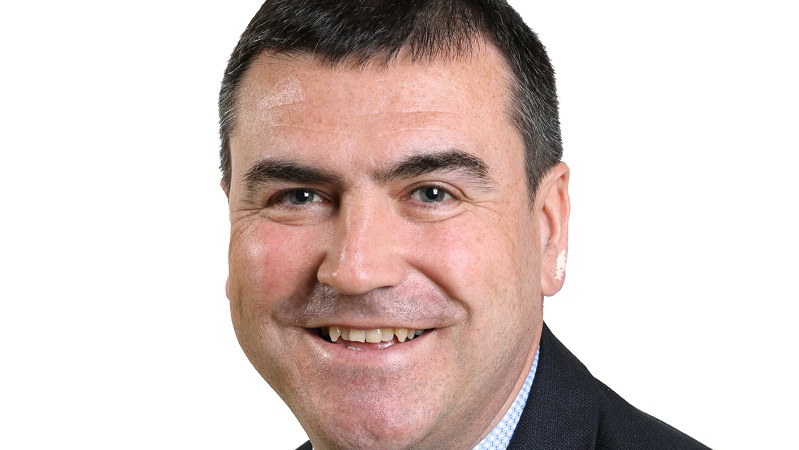When Gary Moglione worked at Pioneer Investments, he wasn’t able to buy investment trusts. The Italian asset management company, which was bought by Amundi in 2016 when assets totalled €243bn (£222bn), was too large to tap into the smaller trading volumes offered by most closed-ended structures. He is now co-manager on an investment trust and is working to attract a more diverse range of investors.
In 2018, Moglione jumped ship to Seneca Investment Managers, where he is one of four co-managers on the Global Income & Growth investment trust, as well as two multi-asset Oeics. In August, Seneca Global Income & Growth became the first investment trust to land a risk profile from Dynamic Planner, which already offers the service to 1,400 open-ended multi-asset funds and model portfolios.
The goal is to appeal to financial advisers who view a lack of risk profiles as a barrier to holding investment trusts rather than other multi-asset alternatives. While assets in the Seneca Diversified Income and Diversified Growth funds are £145.1m and £137.3m, respectively, with a mix of investors, the Seneca Global Income & Growth investment trust is less than half that size, with total assets of approximately £62.7m.
Its investor base is also largely limited to discretionary fund managers, says Moglione. “I know the sales and marketing team were excited about it because normally you wouldn’t even talk to advisers about this type of trust.”
That could leave advised clients missing out on some strong performance. In the five years preceding the Covid-19 market sell-off, Seneca Global Income & Growth outperformed the fund house’s multi-asset Oeics, delivering 51.4%, according to FE Fundinfo. By contrast, the Seneca Diversified Growth Fund returned 43.2% and Seneca Diversified Income returned 36.2%. But the investment trust has underperformed since, down 14.5% compared with falls half that size in the open-ended funds.
While it mostly traded at a small premium in the six months prior to Covid-19, it has since largely traded at a discount, at one point hitting 6%. Although as of 22 September, that narrowed to 0.18%. It currently has gearing of 10%. Moglione notes the team had wanted to tap into the widening Twentyfour Monthly Income trust at the height of the crisis but had been unable to do so due to low trading volumes.
Hunting out small funds
Each of the portfolio managers has a research specialism. Moglione, the most recent addition to the team, is responsible for developed international equities and fixed income. His colleague, Tom Delic, focuses on the same areas, although on the equities side he specialises in emerging markets.
Richard Parfect handles specialist assets, which consists of other investment trusts, where Moglione also helps out, and Mark Wright is responsible for UK equities, the only part of the portfolio where securities are accessed directly rather than via funds.
The Seneca team is particularly keen to hunt out small funds, with Moglione pointing to Morningstar’s Mind the Gap annual report, which analyses funds across asset classes and regions, to make his point. “They look at the actual return of all the funds and then they look at the money-weighted returns.”
He says: “If as fund selectors we’re all efficient and good at what we do then the money-weighted returns should be higher than the actual returns of the funds, because we’re allocating money when things are about to do well and take it away when it’s about to go bad. But there’s this persistent gap.”
Moglione blames that on performance- chasing as well as the fact that large funds are much less nimble. “We are looking for a low AUM so the manager is flexible as to where they can invest, has low trading costs and can move to different areas of market where they see the opportunities.”
Moglione points to Conventum Lyrical as an example of an unloved manager Seneca is buying based on anticipated future returns rather than past performance.
“Value managers have had a tough time in most regions but even more so in the US, and dispersions are broader than they’ve ever been. We’d been out of the US for a number of years but, in May, we took a position in Conventum Lyrical.
“They didn’t have any exposure to the glamour tech stocks, and they held more glass manufacturers and industrials and those types of stocks. We bought them at what we hope is the worst part of the cycle for that kind of manager.”
The Seneca team takes a value approach to asset allocation, meaning it can shun entire geographies from its portfolio, as was the case with the US. UK equities accounted for 34.8% of the portfolio at the end of August, according to its latest factsheet, while international equities accounted for 20.9%.
Boutiques are in charge of their own destiny
Boutiques are another area that appeals to the Seneca team. The fund house does not have restrictions around the length of track record or assets under management needed before they will invest. “They don’t benefit the client in any way, they’re just box-ticking.”
Moglione describes a good fund manager leaving a large asset manager to start a boutique as an opportune time to invest. “They’re now in charge of their own destiny and performance is the main priority. At a large asset management firm, where fund managers tend to begin, your mentality changes because the culture is different.
“What you need to do is not underperform the benchmark significantly and maintain those assets because it becomes a cash cow both for your annual bonus and the business.”
Not that that approach always works out. In late 2018, the Seneca Global Income and Growth trust added the Woodford Patient Capital Trust to its portfolio viewing its 17% discount as an attractive entry point.
When asked about the trust, Seneca’s external PR agency interjects to say it is not a point for discussion. But the full-year results to June 2020 show the Schroders UK Public Private trust, which took over the Patient Capital portfolio in December last year, was one of the top-five detractors from performance. “We believe the new manager can extract value from the current holdings and introduce some promising new investments,” the report said.
It also noted the investment trust’s holdings in Oxford Nanopore, Benevolent AI and Rutherford Health were active in the fight against Covid-19.
A recent addition to the portfolio with considerably less star power is Absolon, a Danish credit boutique. Moglione says: “We have a lot of relationships with third-party marketers. They tell us when a new boutique is opening and ask if we want to go and meet them. We’ve got a reputation for being early investors in these things, so anyone launching a boutique who knows us will come to us directly.”
The Absolon Emerging Markets Corporate Debt Fund was the second-highest fixed-income weighting in the portfolio in August, at 2.8% after the 4% weighting to the Royal London Short Duration Global High Yield Fund. “Fixed income isn’t the place where you can make a tonne of money right now, given where valuations are.”
‘Weeks on end’ without changing the portfolio
The team takes the same approach across its three multi-asset portfolios regardless of structure, although Moglione appreciates more simplified cashflow management on the investment trust. “You can go weeks on end without any need to change the portfolio.”
The structure has also benefited during the “income crisis” bought on by Covid-19, he says. The board has chosen to maintain a dividend of 1.68p per share, which represented an annualised yield of 4.6% at the announcement of the first interim dividend on 19 August. “As a manager I can ensure the portfolio is maintaining its long-term view rather than having to worry about income over the short term.”
According to Moglione, the risk profile from Dynamic Planner will not change the way the team runs money. “The portfolio has a strategic asset allocation, a style philosophy and investment philosophy, and that dictates what happens in the portfolio. The Dynamic Planner rating is an output of that.”
Correction: An earlier version of this article incorrectly said Seneca Global Income & Growth had struggled to buy its own stock during the Covid-19 market sell-off due to low trading volumes when the investment trust in question was actually Twentyfour Monthly Income.







